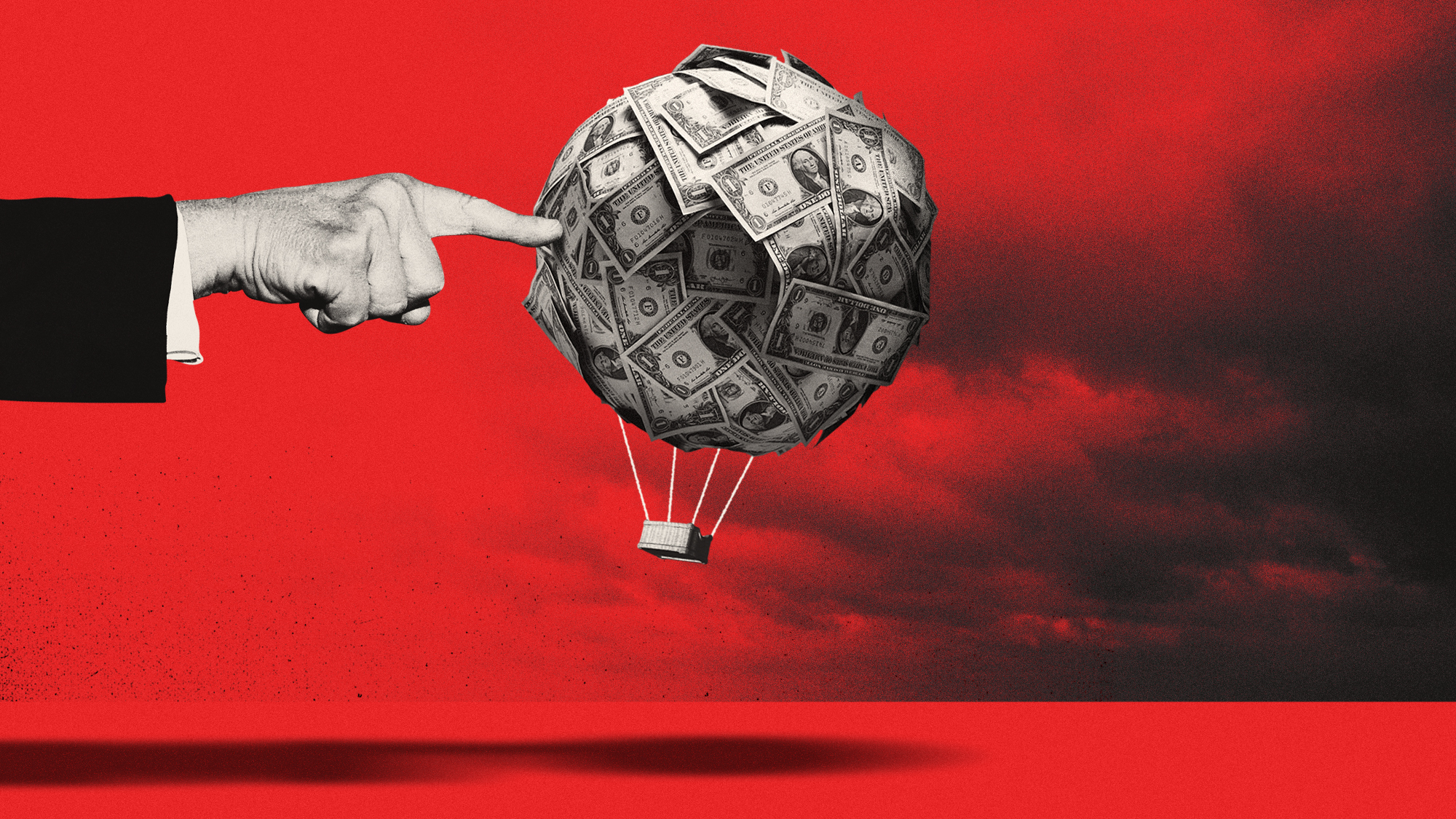How Trump's 'Liberation Day' might affect the economy
Tariffs will rise, but consumer confidence is down


A free daily email with the biggest news stories of the day – and the best features from TheWeek.com
You are now subscribed
Your newsletter sign-up was successful
He is calling it "Liberation Day." It is a branding term for the moment when President Donald Trump's promised regime of retaliatory tariffs against America's trading partners goes into effect, perhaps on April 2. And it could shake up the global economy.
Trump has been "promoting April 2 as a kind of tariffs Super Bowl," said CNN. But it remains unclear how far the White House is willing to go. The president has sent "mixed signals" about the depth and breadth of new tariffs he will impose, said Yahoo Finance. He has talked about giving "a lot of countries breaks" from tariffs, but he has also said he does not want "too many" exceptions. "It's an ongoing discussion," Trump said to Newsmax.
"Consumers are rattled," said economist Carl Weinberg to The Guardian. Consumer confidence "plunged to the lowest level in more than four years in March" because of tariff fears. The Conference Board, which conducts the survey, said respondents reported their "worries about the impact of trade policies and tariffs in particular are on the rise."
The Week
Escape your echo chamber. Get the facts behind the news, plus analysis from multiple perspectives.

Sign up for The Week's Free Newsletters
From our morning news briefing to a weekly Good News Newsletter, get the best of The Week delivered directly to your inbox.
From our morning news briefing to a weekly Good News Newsletter, get the best of The Week delivered directly to your inbox.
'Brace for worse'
Trump's new reciprocal tariffs "could be an important first step" to revitalizing America's manufacturing sector, said Christopher Tang at Barron's. Yes, the president's "fluctuating" tariff announcements have caused "confusion and nervousness" for consumers and businesses. But it "isn't partisan" to note that "U.S. manufacturing is in decline." Tariffs can provide an incentive toward "fostering a robust domestic manufacturing ecosystem."
Because tariffs are "in essence a tax on consumers," Trump's Liberation Day offers the "sort of liberation that most corporate bosses and investors would happily do without," said The Economist. The upside is that April 2 "will at least bring certainty" about the president's economic path. Even experts have been confounded about what to expect. "I don't know anyone who has a lot of confidence in their forecast," said Federal Reserve Chair Jerome Powell last week. One way to deal with all the economic uncertainty, said The Economist, is to "brace for worse."
'Scurrying to find alternative markets'
Liberation Day will expose the Trump administration's "bark vs. bite ratio," said John Authers at Bloomberg. Trump is using the branding to signal "imminent liberation of the U.S. from what he calls an unfair world trade order," but there is still a chance that investors who once thought "Trump's tariff bark would be worse than his bite" will be proven correct. In the meantime, the president's threats are reshaping the world economy. America's trading partners "are already scurrying to find alternative markets" for their goods, Authers said.
The new round of tariffs will likely "put downward pressure on U.S. economic growth," said ABC News. Goldman Sachs earlier this month "hiked its odds of a recession from 15% to 20%," said the network. For now, though, the American economy "remains in solid shape."
A free daily email with the biggest news stories of the day – and the best features from TheWeek.com
Joel Mathis is a writer with 30 years of newspaper and online journalism experience. His work also regularly appears in National Geographic and The Kansas City Star. His awards include best online commentary at the Online News Association and (twice) at the City and Regional Magazine Association.
-
 Political cartoons for February 16
Political cartoons for February 16Cartoons Monday’s political cartoons include President's Day, a valentine from the Epstein files, and more
-
 Regent Hong Kong: a tranquil haven with a prime waterfront spot
Regent Hong Kong: a tranquil haven with a prime waterfront spotThe Week Recommends The trendy hotel recently underwent an extensive two-year revamp
-
 The problem with diagnosing profound autism
The problem with diagnosing profound autismThe Explainer Experts are reconsidering the idea of autism as a spectrum, which could impact diagnoses and policy making for the condition
-
 Is the US in a hiring recession?
Is the US in a hiring recession?Today's Big Question The economy is growing. Job openings are not.
-
 Trump wants a weaker dollar, but economists aren’t so sure
Trump wants a weaker dollar, but economists aren’t so sureTalking Points A weaker dollar can make imports more expensive but also boost gold
-
 Did markets’ ‘Sell America’ trade force Trump to TACO on Greenland?
Did markets’ ‘Sell America’ trade force Trump to TACO on Greenland?Today’s Big Question Investors navigate a suddenly uncertain global economy
-
 Will Trump’s 10% credit card rate limit actually help consumers?
Will Trump’s 10% credit card rate limit actually help consumers?Today's Big Question Banks say they would pull back on credit
-
 Can Trump make single-family homes affordable by banning big investors?
Can Trump make single-family homes affordable by banning big investors?Talking Points Wall Street takes the blame
-
 What will the US economy look like in 2026?
What will the US economy look like in 2026?Today’s Big Question Wall Street is bullish, but uncertain
-
 Tariffs have American whiskey distillers on the rocks
Tariffs have American whiskey distillers on the rocksIn the Spotlight Jim Beam is the latest brand to feel the pain
-
 TikTok secures deal to remain in US
TikTok secures deal to remain in USSpeed Read ByteDance will form a US version of the popular video-sharing platform
